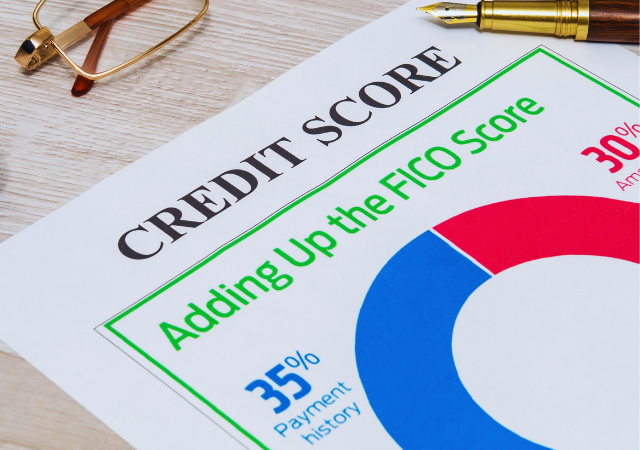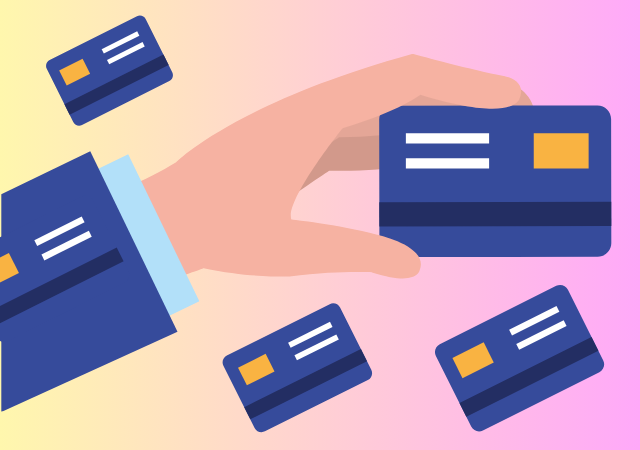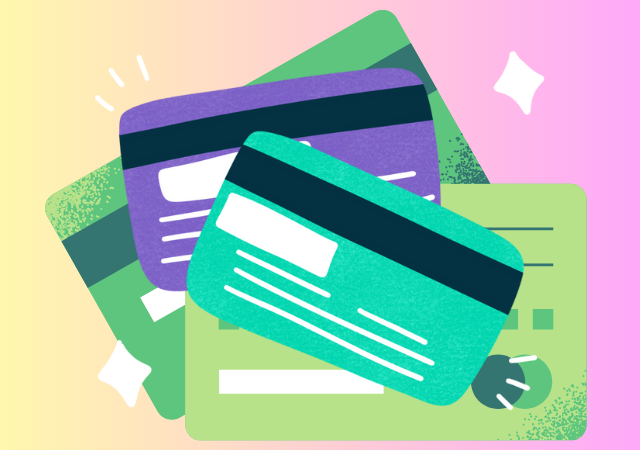Boost Your Credit IQ: The Purchases that Matter Most
Introduction
Welcome to “Boost Your Credit IQ: The Purchases that Matter Most.” Your credit score is a financial compass, guiding your access to loans, mortgages, and favorable interest rates. It’s no secret that building and maintaining a solid credit profile is crucial in today’s world, but the path to a high credit score can seem shrouded in mystery.
This comprehensive guide aims to demystify the process by shedding light on the specific purchases that have the most significant impact on your credit. Credit cards, when used wisely, can be powerful tools for increasing your creditworthiness. From everyday expenses to carefully chosen investments, we will explore how to leverage your credit card to your advantage.
In the following sections, we’ll delve into the art of credit building, unveiling the strategies that will elevate your credit score. By the end of this journey, you’ll have a deeper understanding of the financial moves that matter most, helping you pave the way to a more secure and prosperous future. Let’s embark on this educational adventure together and boost your credit IQ!
Understanding the Credit Score

Before diving into the specifics of what to buy to boost your credit score, let’s start with the basics. Your credit score, typically calculated based on the FICO or VantageScore model, reflects your creditworthiness and risk as a borrower. This three-digit number can range from 300 (poor) to 850 (excellent), and it’s determined by several factors:
1. Payment History: This is the most crucial factor. Paying your bills on time, including credit card payments, loans, and mortgages, will have a significant positive impact on your credit score.
2. Credit Utilization: This is the ratio of your credit card balances to your credit limits. Keeping this ratio low, ideally under 30%, is advisable for a better credit score.
3. Length of Credit History: The longer you’ve had credit accounts open, the better it is for your credit score. It reflects your credit management over time.
4. Types of Credit: Having a mix of credit types, such as credit cards, installment loans, and retail accounts, can positively impact your credit score.
5. Recent Inquiries: Each hard inquiry into your credit (e.g., applying for a new credit card or loan) can slightly reduce your score temporarily.
Choosing the Right Credit Card
To leverage your credit card for building a positive credit history, it’s important to choose the right card. Not all credit cards are created equal, and the card you select can significantly impact your credit-building journey. Here’s what you should consider:
1. Secured vs. Unsecured: If you’re new to credit or have a low credit score, you might start with a secured credit card. Secured cards require a cash deposit as collateral, making them more accessible to those with limited or damaged credit. Once you’ve established a positive credit history, you can move on to an unsecured card.
2. Research Card Offers: Compare credit card offers from different issuers. Look for cards that offer favorable terms and conditions, such as low annual fees, reasonable interest rates, and potentially rewards or cashback benefits.
3. Credit Cards for Specific Goals: Depending on your financial goals, you may want to consider specialized credit cards, such as those designed for students, travelers, or individuals looking to transfer high-interest debt to a lower rate card.
Responsible Credit Card Usage

Now that you have the right credit card in your wallet, it’s time to start using it responsibly to boost your credit score. Here are some key strategies:
1. Pay Your Bills On Time: Your payment history has a significant impact on your credit score. Consistently paying your credit card bills on time is one of the most important things you can do to build and maintain good credit.
2. Pay the Full Balance: Whenever possible, pay your credit card bill in full each month. This demonstrates responsible credit use and avoids high-interest charges.
3. Maintain a Low Credit Utilization Ratio: Your credit utilization ratio is the percentage of available credit you’re using. Keep this ratio low, ideally under 30%, to avoid negatively impacting your credit score.
4. Avoid Excessive Credit Applications: Each time you apply for a new credit card or loan, a hard inquiry is made on your credit report. Multiple hard inquiries in a short period can lower your credit score.
5. Use Your Credit Card Wisely: Don’t use your credit card as a means to finance a lifestyle you can’t afford. Use it for necessary expenses and small purchases that you can pay off in full each month.
What to Buy with Your Credit Card

The key to building credit with your credit card lies in making the right purchases. Here are some categories and items to consider:
1. Everyday Expenses: One of the simplest ways to build credit is by using your credit card for everyday expenses. This includes groceries, gas, utility bills, and other routine spending. These charges, when paid off in full each month, help establish a positive payment history.
2. Small Purchases: Smaller purchases like your morning coffee or occasional dining out can be excellent choices for your credit card. These expenses are easy to manage and pay off promptly.
3. Subscriptions and Online Services: Many people have recurring monthly expenses for services like streaming, software subscriptions, and gym memberships. Putting these on your credit card can help you build credit while ensuring they’re paid regularly.
4. Building a Credit History Over Time: The key to building a strong credit history is consistency. Make a habit of using your credit card for responsible purchases over an extended period.
Monitoring Your Credit

Regularly monitoring your credit is essential to ensure everything is on track. There are several steps to take:
1. Obtain Your Free Annual Credit Reports: Federal law allows you to request a free credit report from each of the three major credit bureaus (Experian, Equifax, and TransUnion) once a year. Review these reports for accuracy.
2. Monitor Your Credit Score: Numerous free and paid services provide access to your credit score. Monitoring your score allows you to track your progress and detect any significant changes.
3. Dispute Inaccuracies: If you find errors on your credit report, it’s crucial to dispute them with the respective credit bureau. Inaccurate information can negatively affect your score.
Using Credit Card Rewards to Your Advantage

Many credit cards offer rewards programs, such as cashback, points, or miles. While these perks can be enticing, it’s important to use them wisely:
1. Cashback: Cashback rewards provide a percentage of your purchases back to you. Consider using a cashback card for everyday expenses and watch your savings grow.
2. Points and Miles: Travel rewards cards can be valuable if you’re a frequent traveler. Accumulate points or miles for future travel expenses, but be cautious not to overspend to earn rewards.
3. Maximize Rewards Without Overspending: While rewards are enticing, avoid the temptation to overspend just to earn them. The interest you’ll pay on your balance can outweigh the rewards you receive.
Building Credit with Different Types of Accounts

While credit cards play a significant role in building credit, other credit accounts can also have a positive impact. Consider the following:
1. Student Loans: If you’re a student or recent graduate, your student loan payments contribute to your credit history. Make these payments consistently to establish good credit.
2. Auto Loans: Purchasing a car through an auto loan and making timely payments can diversify your credit history.
3. Retail Store Credit Cards: Retail store credit cards can help build credit, but be cautious with high-interest rates. Use them wisely and pay off the balance each month.
Mistakes to Avoid

Building credit is essential, but it’s equally crucial to avoid common pitfalls:
1. Overspending: Using your credit card to buy things you can’t afford can lead to debt and damage your credit score.
2. Missing Payments: Timely payments are crucial. Missing even one payment can have a negative impact on your credit.
3. Closing Old Accounts: Closing old credit card accounts can shorten your credit history, potentially lowering your credit score.
4. Co-signing for Others: Co-signing for someone else’s loan can affect your credit if they fail to make payments.
Building a Long-Term Credit Building Strategy

Building and maintaining good credit is a long-term endeavor. Consider these steps:
1. Set Achievable Credit Goals: Define your credit-building objectives. Whether it’s buying a house, getting a favorable interest rate, or accessing credit with lower fees, having clear goals can help you stay on track.
2. Review and Adjust Your Strategy: Regularly assess your credit-building strategy. As your financial situation changes, adapt your approach to ensure it aligns with your goals.
Conclusion
In conclusion, this comprehensive guide has demystified the intricacies of credit building. It emphasizes the importance of wise credit card selection, responsible usage, and thoughtful purchases. Your credit journey is a marathon, not a sprint, and this guide equips you with the knowledge to secure a brighter financial future. Your credit IQ is now enhanced, your path clearer, and your journey towards financial success well begun.

My name is Rohit Vagh and I’m a content writer specializing in fashion and lifestyle. I have three years of experience in this field and have written various articles. My writing style is creative and engaging, and I strive to create content that resonates with my readers. I have a deep passion for fashion and am constantly researching the latest trends and styles to make sure my readers are up to date. I’m excited to continue my career in blogging, and I’m always looking for new opportunities in the fashion and lifestyle space.





